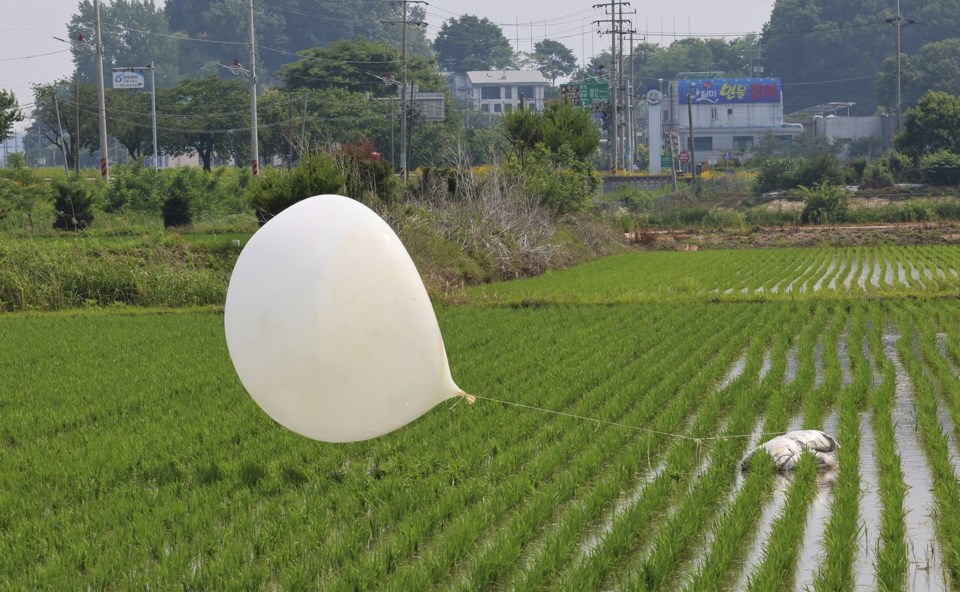PAJU, South Korea (AP) — North Korea is flying more trash-carrying balloons toward South Korea, officials said Thursday, in the latest round of Cold War-style psychological warfare between the rivals.
South Korea’s Joint Chiefs of Staff said it detected more balloons launched from North Korea on Thursday morning following launches the previous evening.
Since May, North Korea has flown thousands of balloons toward South Korea to drop substances such as wastepaper, cloth scraps, cigarette butts and even manure, in what it described as retaliation against South Korean civilian activists who fly anti-North Korean propaganda leaflets across the border.
North Korea is extremely sensitive to any outside criticism of its authoritarian leadership and its third-generation ruler, Kim Jong Un.
The joint chiefs said North Korea launched around 420 balloons from Wednesday evening to early Thursday and about 20 of them had been discovered so far in Seoul, the South Korean capital, and nearby Gyeonggi province. It said the balloons that landed were filled with paper waste, plastic bottles and other trash but contained no hazardous materials.
The joint chiefs said North Korea was launching another set of balloons as of 9 a.m. It advised people to report to the police or military if they see any fallen balloons and not to touch them.
An Associated Press photojournalist spotted several sets of white balloons, which were tied in pairs, floating in the air above the inter-Korean border area from an observatory in the South Korean border city of Paju.
Seoul’s city government issued text alerts Wednesday evening as the North Korean balloons began appearing over South Korean territory, advising people to stay indoors and beware of objects dropping from the sky.
Trash carried by at least one North Korean balloon in July, raising concerns about the vulnerability of key South Korean facilities. Officials said the balloon contained no dangerous material and no one was hurt.
South Korea, in response to the North Korean balloons, has reactivated its front-line loudspeakers to blast propaganda messages and K-pop songs toward the North.
The tit-for-tat Cold War-style campaigns are adding to tensions fueled by North Korea’s growing nuclear ambitions and South Korea’s expansion of joint military exercises with the United States.
___
Kim reported from Seoul, South Korea.
Kim Tong-hyung And Lee Jin-man, The Associated Press


